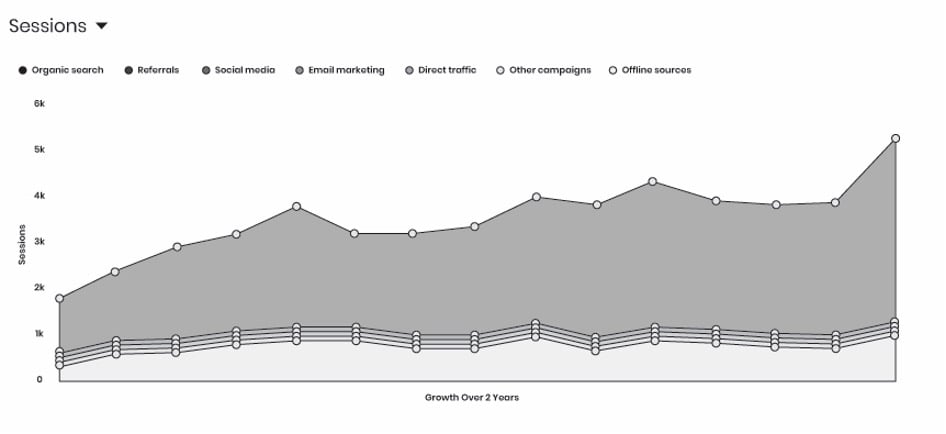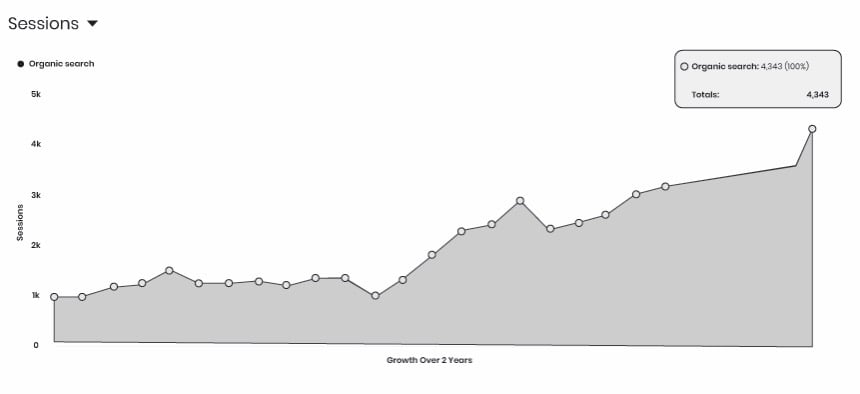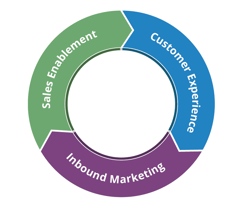When you embark on your inbound marketing journey, it is essential to have processes and tools to track your metrics. Measuring your data, campaigns, and marketing effectiveness is a critical part of your marketing program and overall business success. As a marketer or business owner, the amount of available data can be overwhelming. Consequently, there are typically two things that happen when it comes to data and analytics:
- People tend to track too many metrics and go into data analysis fatigue. Too much data can make it almost impossible to make actionable decisions.
- People get so overwhelmed with the data-tracking tools and the amount of available data that they don’t attempt to track anything.
Don’t fall into either of these categories. In this blog, we will review why you need to track your metrics, how you can track your metrics, and the metrics that are important as a starting point. Remember, you can’t manage what you can’t measure, so let’s work on making this process more streamlined and manageable.
You would be surprised by how many organizations continue to rinse and repeat the same campaigns, advertising, and content without ever analyzing if it’s working. These companies wonder why they do not see increased website traffic, qualified leads, and customers. Einstein once said that the definition of insanity is continuing to do the same thing repeatedly, expecting a different result. When companies fail to track and measure their marketing and sales performance, they will not improve their results because they won’t know what is working and what is not.
By tracking your metrics, you can see how you are trending toward your goals. Remember, you set your marketing goals based on the goals of your business. Using data and metrics, you can determine if your business is moving toward your larger company goals with each marketing campaign. To achieve this, it is essential to set Key Performance Indicators (KPIs). KPIs allow you to track your marketing and sales efforts, driving toward a larger goal. For example, suppose you are looking to increase your website traffic. In that case, you want to set a goal for how many website visitors you want to attract from your blogs, social media, organic traffic, and referral traffic. By doing this, you can measure which channels are working toward achieving your larger goal of improving your number of website visitors.
What KPIs Are Important to Track?
If you have tried to measure your data before, you have probably seen that the amount of available data can be overwhelming. You need to narrow down your data and define your essential metrics. Here are important KPIs and the frequency with which you should be tracking them.
Website Traffic
- Overall Traffic: You need to measure how your website traffic is performing over time. There will be monthly fluctuations, but your goal is to see a general upward trend across your data sources. How often should you track this metric? Weekly
Practical Application:
The following is an example from a professional services firm. You can see steady and consistent growth and a continual upward trend. You can see how each channel helps drive website traffic, which we will focus on in more depth.
- Organic Traffic: Organic traffic measures how many people find your website through search engines such as Google, Yahoo, and Bing. Organic traffic shows you how many people typed in keywords relevant to your business in those search engines and how your business appears in search results. This metric doesn’t change overnight, and it does take a significant amount of time and new content on your website to see steady growth. However, organic traffic is one of the most important metrics because as your organic traffic grows, your company shows up in more search results, and more people find your website through unpaid searches. How often should you track this metric? Monthly
Practical Application:
The following shows an increase in organic traffic over time for the same professional services firm. With regular content development and a focus on keywords to drive traffic, the professional services firm has seen monthly organic traffic increase from less than 1,000 to over 4,000 organic visits per month in 18 months. Content is a key driver of this type of success. You will see your metrics improve like this when a consistent amount of new content is created for your website.
Other Important Sources of Traffic
Website traffic will also be driven by several additional sources that are important to measure. How often should you track all of these metrics? Weekly.
- Email Marketing: Measure the number of visits to your website generated by your email marketing and marketing automation efforts. This will identify the types of emails and content driving the most interest back to your website to read your content.
- Referrals: Measure how many visits come to your website from another website. For example, if you are a guest author on Forbes, you would have referral traffic from Forbes.com. Having strong referral sources increases the value of your website content since search engines such as Google, Yahoo, and Bing crawl your website.
- Social Media: Measure the number of visits to your website from your social media posts. You can track your organic social posts and your paid social posts separately. This allows you to measure how your organic social posts perform compared to your paid social advertising to determine the channels driving the most website traffic.
- Paid Search: Measure the number of visits to your website through paid search advertising such as Google Adwords, retargeting ads, and other paid media placements. This will allow you to identify the best-performing ads to make more informed ad placement decisions in the future.
As you can see, there are many marketing metrics to track just from your website traffic alone. You can quickly start to track too much that it becomes overwhelming. But if you track the right metrics at the right cadence, it will start to help you make more data-informed decisions to guide your marketing efforts.
Are you looking for ways to optimize your inbound strategy? The "book "Mastering Inbound Marketing: Your Complete Guide to Building a Results-Driven Inbound Strategy," written by Elyse Flynn Meyer, Owner & Founder of Prism Global Marketing Solutions, covers every aspect of the inbound marketing methodology, including the revenue generation trifecta of marketing, sales, and the customer experience. Check out the book to see how to most efficiently and effectively develop, implement, and maintain your inbound strategy.







.png?width=250&name=diamond-badge-color%20(1).png)
